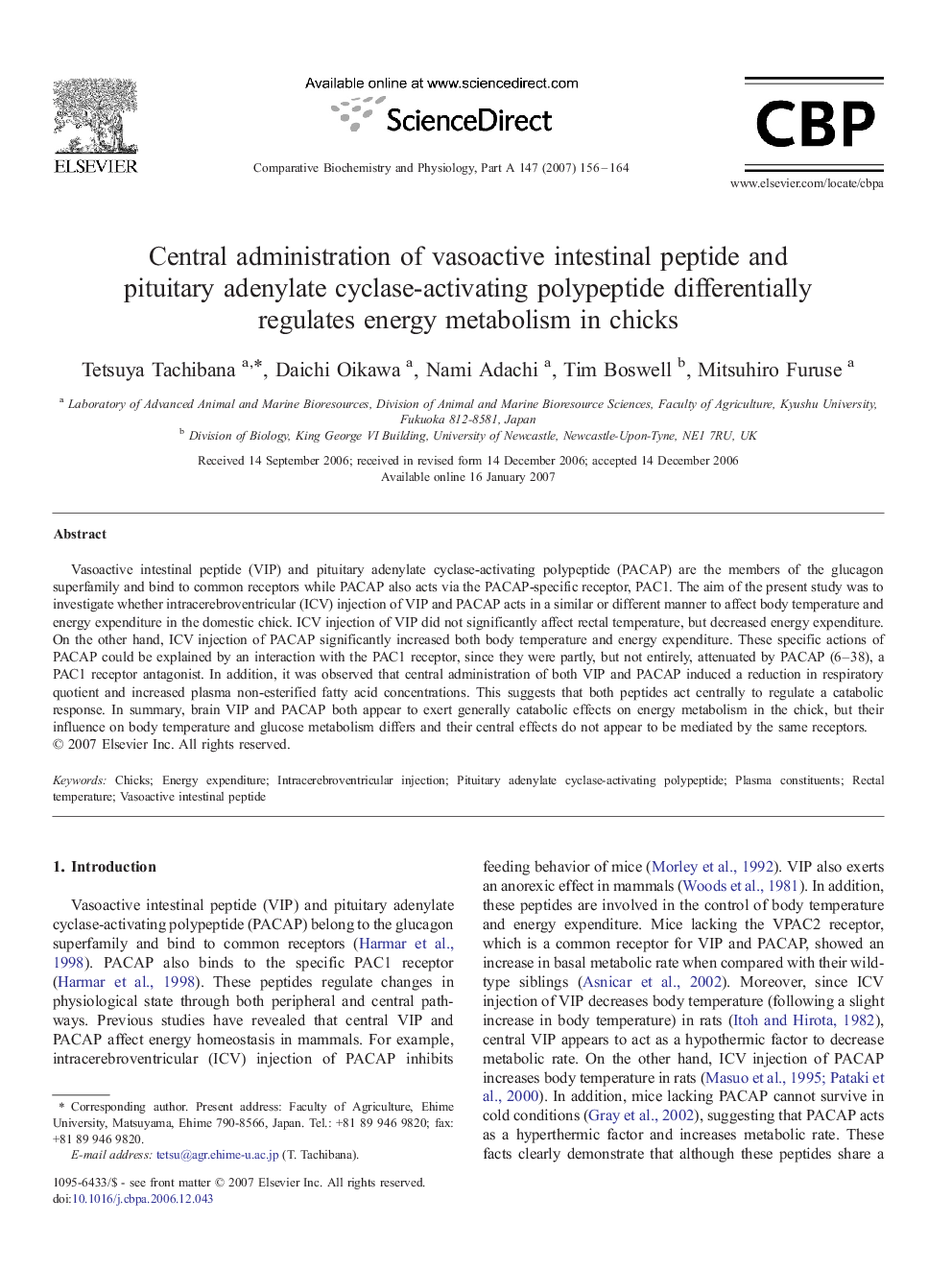| Article ID | Journal | Published Year | Pages | File Type |
|---|---|---|---|---|
| 1974847 | Comparative Biochemistry and Physiology Part A: Molecular & Integrative Physiology | 2007 | 9 Pages |
Vasoactive intestinal peptide (VIP) and pituitary adenylate cyclase-activating polypeptide (PACAP) are the members of the glucagon superfamily and bind to common receptors while PACAP also acts via the PACAP-specific receptor, PAC1. The aim of the present study was to investigate whether intracerebroventricular (ICV) injection of VIP and PACAP acts in a similar or different manner to affect body temperature and energy expenditure in the domestic chick. ICV injection of VIP did not significantly affect rectal temperature, but decreased energy expenditure. On the other hand, ICV injection of PACAP significantly increased both body temperature and energy expenditure. These specific actions of PACAP could be explained by an interaction with the PAC1 receptor, since they were partly, but not entirely, attenuated by PACAP (6–38), a PAC1 receptor antagonist. In addition, it was observed that central administration of both VIP and PACAP induced a reduction in respiratory quotient and increased plasma non-esterified fatty acid concentrations. This suggests that both peptides act centrally to regulate a catabolic response. In summary, brain VIP and PACAP both appear to exert generally catabolic effects on energy metabolism in the chick, but their influence on body temperature and glucose metabolism differs and their central effects do not appear to be mediated by the same receptors.
